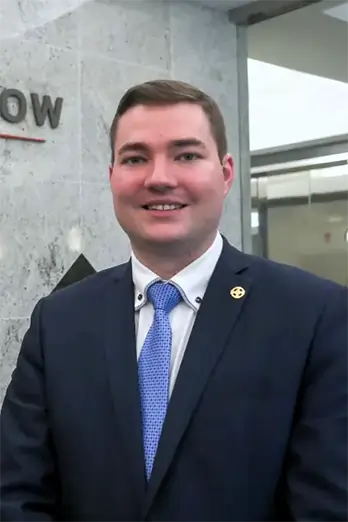During our intake process for clients who have been injured in car accidents, or in any sort of personal injury matter, we always go over a past medical history. Often times, our clients get very confused by this. Some clients may even feel that it is even an intrusion into their privacy. We got a lot of questions as to why we want this information, and it is a legitimate question. So allow us to explain.
The intake process
After you have been involved in a Virginia car accident, or a Maryland truck accident, for example, we will go over any of the medical treatment that you have had, due to the injuries you suffered in that accident. It is important for us to understand what injuries you sustained, and what parts of your body were hurt.
After we have gone over the current accident, we then ask about any other accidents that you have been involved in, no matter how long ago. We will also ask if you have ever had any injuries to the parts of your body that were injured in this accident, in any other accident. We will often ask if you have ever been seen by an orthopedist, chiropractor, physical therapist, or neurologist before.
Why? What we have to prove
In any personal injury case, from slip and fall to truck accident to car accident, we have to prove two very important points:
- We have to prove that the defendant was negligent, and
- We have to prove that the injuries that you are claiming are causally linked to that negligent incident, or accident
There is a fallacy circulating around the world, that has no application at law, and is one of the biggest issues we have as personal injury attorneys. Post proc, Ergo, propter hoc. This is a Latin term that means “after it, therefore, because of it.” Loosely translated, it means if something happens after something else, then it is related to that something else. But it is not true! In the world of car accidents, just because medical treatment happens after an accident, does not mean it was caused by or is directly related to that accident!
It is our responsibility to prove that medical treatment was not only necessary, but also was the direct and proximate result of the car accident.
Look at this example:
LaShonda is in a car accident in Virginia. She is rear-ended at a stoplight
by a truck. The ambulance takes her to the hospital, where she claims
that she has pain in her neck and her back. They do a bunch of X-rays
and send her home. A week later, LaShonda goes to a podiatrist and
claims that she has pain in her right foot. During the doctor’s examination,
she mentions that she has had this pain on and off for the last year.
The doctor does some x-rays, and determines that surgery will be necessary.
In this situation, the podiatrist visit is after the accident. It is only a matter of days after the accident happened. But is that visit, and all of the subsequent treatment, such as the surgery the doctor needs to do, related to the accident? Based on the limited facts illustrated here, the answer is: no.
But why? Because LaShonda told the doctor that the pain “has existed for a year.” Her car accident was only a few days before. So the doctor is treating a condition that predates the accident. The injuries, and the treatment therefore cannot be directly linked to the accident, and so if LaShonda tries to claim that treatment, it allows the insurance company to attack her credibility – on this, and then anything else.
A slightly different fact pattern can change that, however!
LaShonda’s podiatrist says that the accident has aggravated the
pre-existing injury, and while she would not have needed surgery
before the accident, now it has gotten much worse, and the surgery
is now necessary.
An exacerbation or aggravation of a pre-existing injury is claim-able, if it is reflected in the medical records. The difficult is in establishing a base-line: what was the condition before the accident vs now, after the accident? More on this, below.
Everything comes down to what the doctor says. Most importantly, this means what the doctor puts in his report and his medical records. Many times, unfortunately, we are confronted with situations where a doctor will verbally tell something to a patient, but will never put that statement in the report and medical record. The doctor’s verbal statements are unhelpful, because we cannot reproduce them to an insurance company. Generally speaking, if it is not in the medical record, it didn’t happen! We have found that some doctors will voice an opinion that they refuse to state in writing.
The insurance companies’ arguments
Medical history is extremely important to car accident lawyers because we know what arguments the insurance companies are going to use to attack your case, to reduce the damages, or deny the claim out right. Medical history, and pre-existing conditions, are one of the biggest sources for the arguments that they will make. The insurance companies make these arguments in almost every case, and they make them because, many times, they work!
Insurance adjusters will often allege that the injuries that a claimant sustains were not caused by the accident, but pre-existing. The burden is on the claimant, and the claimant’s attorney, to prove that the injuries are, indeed, related. The best way to do this is by gathering a medical history. For example, if the insurance company claims that you, the person who’s been involved in the car accident, has had back pain for years, then we have to fight that argument. So if we can get your primary care doctor’s records which proves that you have had no musculoskeletal complaints for the last couple of visits before the accident, then this will defeat the insurance companies’ arguments.
Pre-existing conditions and Car Accident Cases
As shown in the example above, most treatment for a pre-existing condition is generally not going to form part of your personal injury claim. However, if the pre-existing condition was aggravated or made worse by the car accident, then that may very well become part of the claim. In these situations, it is important for us to understand all of the medical treatment surrounding this pre-existing condition.
In order to properly evaluate the pre-existing condition, and the impact that the accident had on it, we have to establish a baseline. We do this by reviewing these records. For example, if your pre-existing back issue showed that you constantly had pain that you rated at the doctor’s office as a 5 out of 10, but after the accident your pain rating was always a 7 out of 10, then that increase (of 2) is what we are going to use as the basis for the claim.
Previous car accidents
Another favorite tactic of the insurance companies is to allege that any injuries that you sustained in your current car accident are actually unresolved issues from your previous car accident, and that you weren’t injured at all in this accident! This is a big favorite of the insurance industry. But we are able to fight such an allegation. Here again, it’s important for us to explore our clients’ medical history to be able to make that fight effective.
We review our client’s medical history, and we will obtain the the medical records relating to that previous car accident either from the providers themselves, or from our client’s previous attorney. This way we will have medical records that prove that the client did in fact make a full recovery, and was discharged from care. This is written evidence that the client did not have the residual issues that the insurance company is claiming.
Other times, we will ask for primary care doctor records, as part of our investigation when the insurance companies make these claims. We will get these medical records, after the clients treatment is done from their previous car accident, which shows that the patient had indeed returned to their previous baseline. Sometimes, we will provide a visit or two of those records with our demand package to the car insurance companies to kill such an argument right away, and press on with the case.
At the end of the day, it all comes down to evidence. We cannot merely make allegations to refute the insurance companies’ allegations. That may seem unfair, but it is the way it is. The plaintiff always has the burden of proof, to 1) prove the case, and to 2) prove his or her injuries.
The insurance companies and using your own records against you
Sometimes when clients come to the office to see us, they have already spoken to insurance companies, and they have already signed HIPAA authorizations, that allows the insurance companies to get medical records on their own. This is horrible! Never sign any authorizations that insurance companies send to you, because they will use your medical records against you, rather than for you. For example, if you have been to the doctor claiming of a little bit of stomach pain a year ago, then the insurance company will use that record after your car accident today, to say that all of this stomach pain that you are claiming after hitting the steering wheel, is actually unresolved pain from a year ago, and “see it says so here in the medical records!”
It is the job of the experienced car accident attorneys at Blaszkow Legal to protect you, at all times. But if you do not speak to an attorney after a car accident, then you are not protected. The insurance companies will use anything and everything they can to reduce your claim, or deny it out right.
Speaking to a car accident lawyer after a car accident
You cannot consult with an experienced car accident lawyer too soon, after a car accident, truck accident, bus accident, or other personal injury matter. The sooner you call an attorney, the sooner you are protected from all of the games at the insurance companies like to play. The insurance adjusters, no matter how sweet they sound on the phone, are being advised by extremely competent and vicious defense attorneys. It is not a fair fight, if you are trying to fight alone. You will not get the fair value of your claim, unless you are represented by an attorney who knows the law, and knows how to stop the insurance companies in their tracks, when they try to knock the legs out from under your case.
Attorney Joe Blaszkow and his team have over 40 years of experience, getting all of the compensation possible for our clients, in Virginia, Maryland and DC.
If you have been injured in a car accident that was not your fault, then Get Justice with Joe!
Call 703-879-5910 for a free consultation





